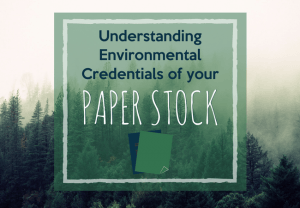 Paper Sustainability in catalogue, brochure and magazine printing
Paper Sustainability in catalogue, brochure and magazine printing
Although brochure printing, magazine printing and catalogue printing may not be considered environmentally friendly at first glance, there are ways to make the process more sustainable. For example, using recycled paper or responsibly sourced paper can help reduce the impact on the environment. Additionally, choosing vegetable oil-based inks and pigments can also help reduce the environmental footprint of these types of print projects. Finally, ensuring that printed products are properly disposed of or recycled can further help promote sustainability within this industry.
The print cycle is a process that begins with the creation of a design and ends with the delivery of the finished product. In between, there are a number of steps that must be completed in order to produce high-quality prints. Corporate or social responsibility is now ingrained within the print industry, and it has only been a few years since printers started to use vegetable based inks. Some still don’t! However, this is an extremely simplistic view of what the print cycle actually entails.
The move towards sustainable magazine and brochure printing began with the harvesting of specifically grown trees for paper. Sustainable forests were created, meaning that more trees were planted than felled. The majority of paper now used in the UK comes from sustainable forest stocks. As the industry woke up to environmental issues and their responsibility to uphold standards, environmental accreditation programmes such as ISO14001 and EMAS were introduced.
There are a few key programmes that you should be aware of:
FSC – the Forests Stewardship Council
The Forest Stewardship Council (FSC) is an international non-profit organisation that promotes responsible forest management. The FSC has set out standards and principles which outline what is required in high level responsible Forest management. By becoming FSC accredited, wood based products can then carry the FSC logo. This allows consumers to know that the item has been certified as coming from a well-managed forest and to make an informed choice about the products they use. The FSC is made up of environmentalists, industry representatives, foresters, indigenous groups, and social organisations from around the world.
PEFC
The Program for the Endorsement of Forest Certification schemes (PEFC) is a non-profit organisation that promotes sustainability through the management of forests. This non-government body provides reassurance to companies involved in the purchasing of wood and paper products that they are promoting the sustainable management of forests.
ISO 14001
The ISO 14001 certification is a voluntary, international standard that provides businesses with a framework and tools for implementing a systematic approach to environmental management. The certification standard is set by the International Organisation for Standardisation (ISO) in Switzerland. Around the same time, other organisations were created to enable consumers to identify products from environmentally sound sources, such as the Forest Stewardship Council (FSC) and Programme for the Endorsement of Forest Certification schemes (PEFC).
EMAS – Eco Management and Audit Scheme:
As a company, it’s important to be sustainable and environmentally friendly. To do this, you can carry out sustainability surveys, create a sustainability policy, put in place an environmental management system (like ISO 14001), and carry out audits. The results of the audits should be published in an ecological annual report, which will be monitored by independent assessors.
As demand for environmentally friendly paper increases, the cost difference between accredited and non-accredited paper is diminishing. It’s not hard to imagine a future where all papers will be FSC or PEFC accredited. Any printer can provide you with either FSC or PEFC certified paper from ISO14001 and EMAS accredited mills for your brochure, magazine, or catalogue printing needs – but only by using an FSC/PEFC logo on your printed material can you show consumers that your company cares about the environment. A reputable print business should be ISO14001 and FSC/PEFC accredited to ensure that their products are produced in a way that doesn’t harm the planet.
Which is better: recycled or sustainable paper?
When it comes to choosing paper that is environmentally friendly, there are two main options: 100% recycled paper or sustainable paper. Both have their own benefits and drawbacks, so it’s important to understand the difference between them before making a decision. 100% recycled paper is made from pre- or post-consumer waste material, rather than from felling trees.
The waste material is mixed with water and chemicals and then chopped up to break down the fibres into pulp. This pulp is then purified through a process of cleaning, straining, de-inking, and bleaching until it is ready to be made into recycled paper.
One benefit of this option is that it helps reduce landfill waste; however, some people argue that the harsh chemicals used in the purification process offset any environmental advantages. Sustainable paper comes from wood sourced from managed forests where replanting occurs after each tree harvest. As a result of this practice, forest growth in Europe has increased by 30% since 1950 . While sustainable forestry does help support wildlife habitats , some environmentalists argue that clear cutting – even for sustainably managed forests – can still cause long-term damage to ecosystems.
What sustainable paper stocks can we provide?
All of the coated and uncoated house sheets that we use for our brochure, magazine, and catalogue printing are FSC mixed sources accredited. This means that the stock contains one or more of the following: FSC sustainably certified wood and fibre Reclaimed or recycled wood and fibre Virgin wood from controlled sources Due to our strong working relationships with different paper companies, we can source all types of recycled stock in addition to our standard FSC sheets.
For all of your brochure printing, magazine printing and catalogue printing needs, please contact Simon at simon@magazineprintingcompany.com or call 01323 419701